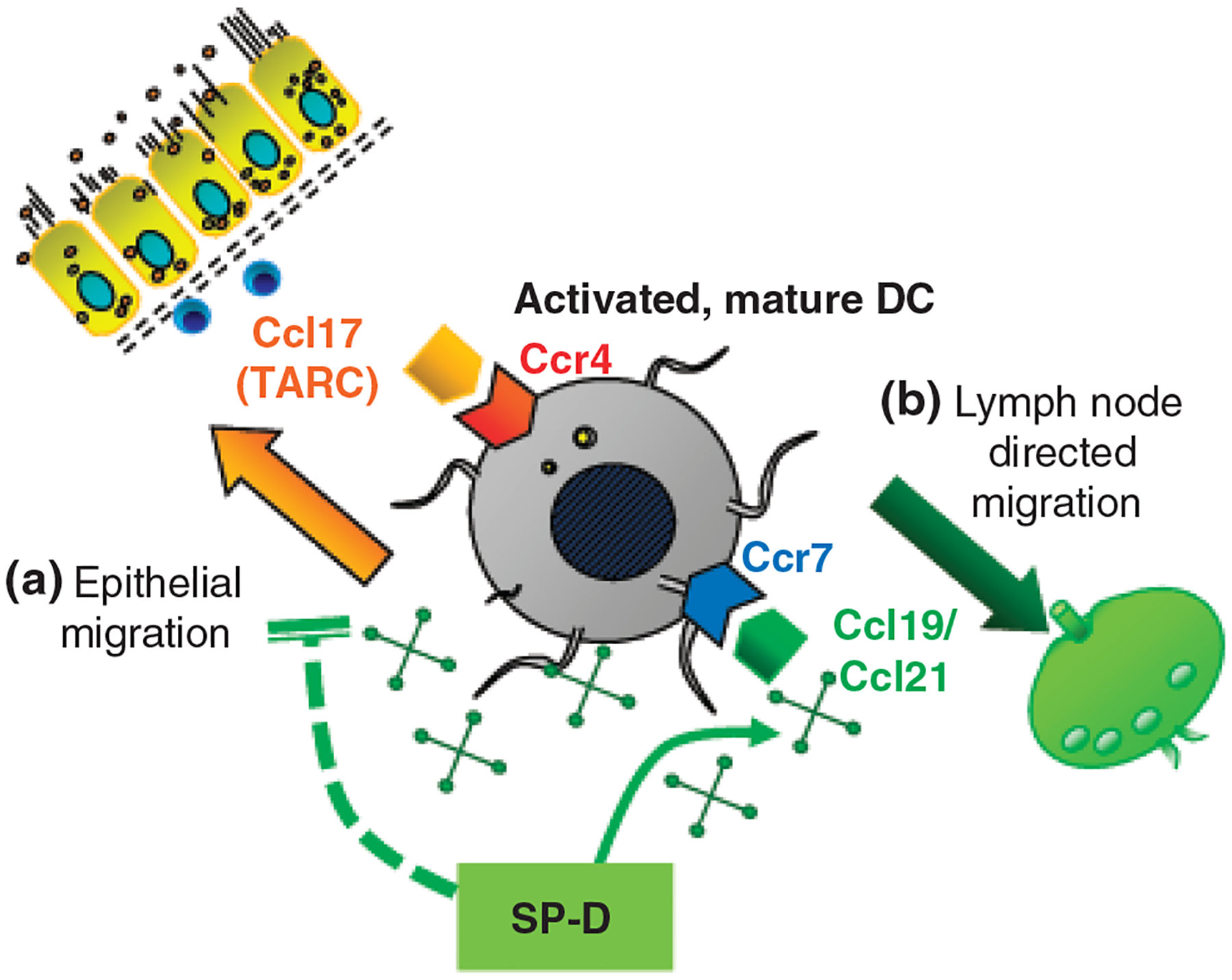Fig. 2.

Hypothetic role of SP-D in dendritic cell migration. In Aspergillus fumigatus-induced allergic airway inflammation, the Ccl17-Ccr4 and Ccl19/21-Ccr7 ligand–receptor pairs were significantly up-regulated at the mRNA level in a time-dependent manner in mice [4, 165, 166]. (a) SP-D prevents the epithelial migration of myeloid dendritic cells by inhibiting autocrine Ccl17 release. Ccl17 (thymus and activation-regulated chemokine, TARC) is responsible for attracting Th2 lymphocytes and activated myeloid dendritic cells to the airway submucosal tissue through its receptor, Ccr4 which is expressed specifically on Th2 cells and activated dendritic cells. (b) SP-D promotes the uptake of inhaled pathogens and the migration towards the mediastinal lymph nodes. In addition to the initiation of naïve T cells, lymph-node-directed migration serves the purpose of confining the immune response to the lymphoid area leaving the airways pathogen and inflammation free. This process is driven by Ccl19 or Ccl21, both of which act on the chemokine receptor Ccr7.
